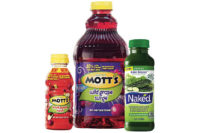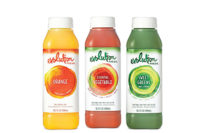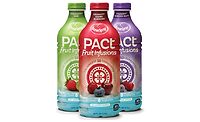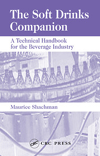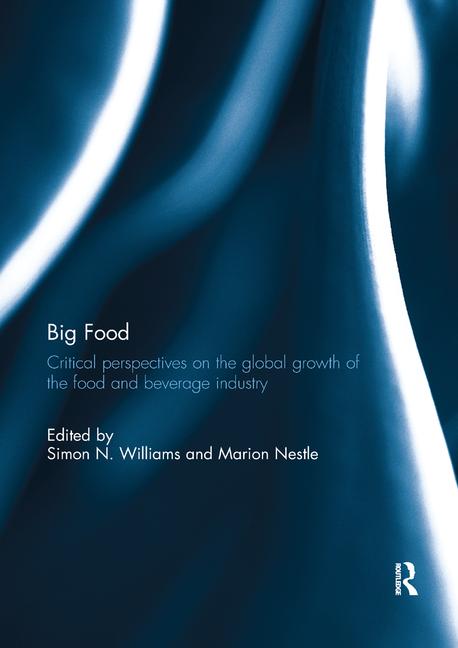2013 State of the Industry: Juice & juice drinks
Juices reformulate to meet consumer preferences








As consumers are encouraged by dieticians and nutritionists to reduce sugar consumption, beverage manufacturers also are heeding this call by developing juice drinks that fit the bill.
Last year, Purchase, N.Y.-based PepsiCo’s Tropicana brand added new varieties to its Trop50 line of better-for-you, stevia-sweetened juice drinks to entice health-conscious consumers. The Trop50 Red Orange blend of orange juice and red orange juice, which was released in May 2012, offers 50 percent less sugar and calories than 100 percent juice blends, the company says. Both Glendale, Calif.-based Nestlé’s Juicy Juice and Bethesda, Md.-based Honest Tea, a subsidiary of The Coca-Cola Co., have catered to consumer trends by releasing juice products for kids with less sugar content. Juicy Juice Fruitifuls all-natural juice drinks offer 35 percent less sugar than the brand’s regular juice lines and a full serving of fruit in each single-serve carton, the company says. Honest Tea reformulated its Honest Kids juice drinks in 2012 by removing the organic cane sugar from all five varieties of the juice line and sweetening the beverage with added juice, the company says. The juices now contain 30 to 42 percent juice, an increase of 12 to 26 percentage points, depending on the variety, and 40 calories in each 6.75-ounce pouch, it says.
Overall, Chicago-based Information Resources Inc. (IRI) reports that dollar sales for the refrigerated juice and juice drinks category increased 4 percent to more than $6.6 billion in measured channels during the 52 weeks ending May 19.
Orange juice remains the No. 1 juice variety of consumer choice, dominating nearly 50 per-cent of the juice market, Agata Kaczanowska, beverage industry analyst for Santa Monica, Calif.-based IBISWorld, said in Beverage Industry’s January issue. Apple follows at No. 2, making up 32.9 percent of the market, she added. Following these two flavors are grape at 5.3 percent, cranberry at 3.5 percent, pineapple at 2.8 percent, grapefruit at 2.6 percent, and lemon at 2.1 percent, respectively, IBISWorld reported.
The rising star in the fruit juice blends category in the last year has been coconut water, said Sarah Levesque, food and beverage analyst for Chicago-based Mintel, in Beverage Industry’s January issue. The segment grew 164 percent from 2010 to 2011 in food, drug and mass merchandise stores excluding Walmart to $69 million and is expected to boost total juice sales by 8 percent in the near future, according to Mintel’s January 2012 report, “Fruit Juice and Juice Drinks – U.S.”
The refrigerated juice and juice drink smoothie segment also continued to outpace the overall category with growth just shy of 32 percent for $701 million, according IRI data. Adding to the segment, Bakersfield, Calif.-based Bolthouse Farms, a subsidiary of Campbell Soup Co., released several new additions to its lineup last summer. Building on its flagship Carrot variety, the company has created an Orange + Carrot blend, which offers 300 percent more vitamin A than traditional orange juice, the company says. It also added two new breakfast replacement drinks: Strawberry Parfait Breakfast Smoothie and Peach Parfait Breakfast Smoothie.
Looking for a reprint of this article?
From high-res PDFs to custom plaques, order your copy today!



